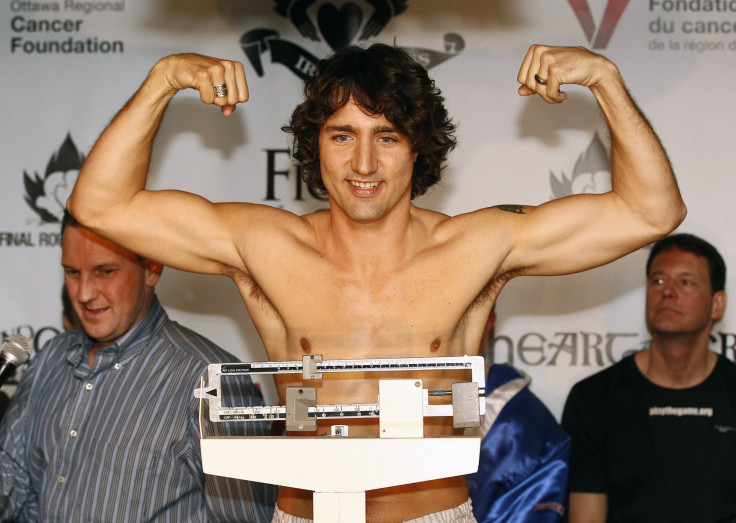Follow The Leader: Big Muscles In Men Indicate Leadership, Make People More Likely To Follow

Let’s face it; appearance plays a major role when you’re meeting someone for the first time. That includes material things we choose to wear, such as clothing and jewelry, and our physical appearance. Dress for the job you want, not the one you have, right? Well, we may also want to bulk up if we want to be respected. A recent study conducted by the University of California, Berkley has found that men with bigger muscles tend to be viewed as better leaders.
“Perceived strength does give people an advantage but it's not make or break,” said Cameron Anderson, a professor of management at UC Berkeley's Haas School of Business, in a statement. “If you're behaving in ways that demonstrate you are a leader or are not a leader, strength doesn't matter."
Anderson and his colleagues conducted a series of experiments that tested the physical strength of a sample of men. Each man then posed for photographs taken from the knees up in a white tank top that revealed their shoulder, chest, and arm muscles. Chest and arm strength was measured via a handheld, hydraulic Dynamometer. Then a group of men and women, nearly equal in number, were recruited to view the photos.
Here’s the catch: Participants were told they would be rating people who were recently hired by a new consulting firm before looking at the photos. Each participant was asked to rate the person in the photo on how much they admired him, if they held him in esteem, and believed he would rise in status. They were also asked: "Do you think this person would be a good leader?" and "How effective is this person dealing with others in a group?"
"The physically strong men in the pictures were given higher status because they are perceived as leaders," said Anderson. "Our findings are consistent with a lot of real examples of strong men in positions of power."
In the second experiment, researchers used Photoshop to switch the bodies and faces of heavily muscled and weaker men. Participants that were shown a weak man’s face reattached to a strong man’s body were more likely to view them as higher in status and someone who possessed leadership qualities. In the third and final experiment, researchers reused Photoshop to photograph men in three different lineups.
From right to left, the first lineup was two tall men and two short men. The second lineup was two short men and two tall men. The third lineup was four men of equal height. To examine the height factor, researchers asked about the stature of each man in the photos. Men who were taller in height were also perceived to be stronger and rated higher in status and leadership.
Not all men perceived as strong were viewed in favorable terms, however.
"Strong men who were perceived as being likely to behave aggressively toward other group members were actually granted less status than their apparently gentler counterparts,” said Aaron Lukaszewski, an assistant professor at Oklahoma State University and an author of the study. "Together, the results suggest that the conferral of status upon formidable men, perhaps counter-intuitively, serves a fundamentally pro-social function — to enhance the effectiveness of cooperation within the group.”
This correlation between strength and leadership did not persist when the participants were shown photos of stronger and weaker women. This could be tied to the intimidation factor when men work under powerful women. A recent study published in the Society for Personality and Social Psychology revealed that men are more threatened by female supervisors compared to their male counterparts. These men viewed a female boss as a threat to their masculinity and acted aggressively when interacting with her about matters such as salary negotiations.
Source: Roney J, Simmons Z, Anderson C, Lukaszewski A. The role of physical formidability in human social status allocation. Journal of Personality and Social Psychology. 2016.



























